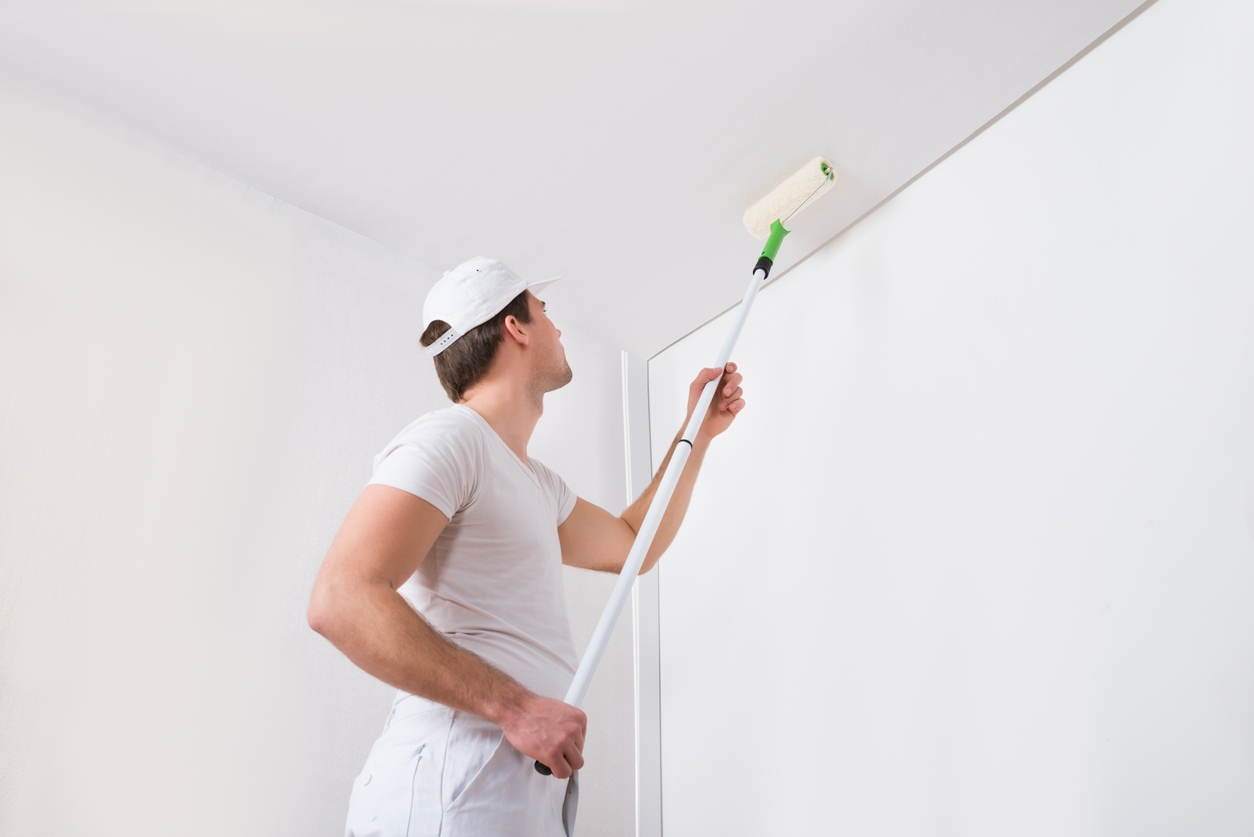Hiring a professional painter might seem pricey compared to doing it yourself, but the time and stress saved are well worth the cost. You’ll receive professional work that lasts for years. Finding a painting contractor who meets and exceeds your expectations is crucial.
However, with so many options available, it’s essential not to choose hastily. The key is to gather as much information as possible about the painting companies in your area, especially the ones you’re considering hiring. This thorough research will help ensure you make the best choice for your project.
Tips for Choosing the Best Painter
Here’s how to choose the best professional painter:
1. Determine Your Needs
Before diving into a painting project, it’s essential to define what you need clearly. Are you looking to freshen up the interior of your home, or is the exterior in need of a makeover? Maybe it’s a residential project or a commercial space that needs a professional touch. Knowing the scope helps in choosing the right painters and materials.
Next, set a budget and a timeline. Consider how much you’re willing to spend and how quickly you need the job done. A clear budget helps in making informed decisions and avoids unexpected costs. Likewise, setting a timeline ensures the project stays on track, especially if you have specific deadlines, like an upcoming event or the changing seasons. These details will make the rest of the process smoother and more manageable.
2. Research and Gather Recommendations
Start by focusing on local painters who know your area well. They understand the unique weather conditions and know which paints and techniques work best here. Plus, they’re familiar with the architectural styles within your area.
Next, check online reviews on platforms like Yelp and Google. These reviews give you a sense of the painters’ reputation and quality of work.
Once you have chosen a few contractors to consider, ask for references. Any reputable company proud of their work will gladly provide references. Once you have these, reach out to past clients who have had work done within the last six months. This will give you a good sense of how well the finished work holds up over time.
You can also learn about the workers’ professionalism, including their punctuality and communication with clients. This feedback will help you gauge the overall experience and quality of service the painting company provides.
Don’t forget to ask around—friends, family, and neighbors can offer valuable recommendations based on their experiences. If someone you know had a recent painting or renovation work that you liked, you can ask about their contractor. This personal feedback is often the most reliable.
3. Check Credentials and Experience
When hiring a painter, it’s crucial to check their credentials. Ensure they are licensed and insured in your area – this protects you in case of accidents or issues. Ask to see a portfolio of their previous work, especially projects similar to yours. This will give you an idea of their style and quality.
Also, see if they belong to professional organizations like the Painting Contractors Association (PCA). Membership in such groups often indicates a commitment to high standards and ongoing education in their craft.
4. Evaluate Quality and Professionalism
When choosing a painter, looking at the quality of the materials they use is essential. High-quality paints and materials ensure a beautiful and long-lasting finish. Then, check the painter’s workmanship. Pay attention to their attention to detail and how clean they keep the work area – these are good indicators of their professionalism.
Remember to assess their customer service. Clear communication and reliability are key—you want a painter who listens to your needs, explains the process, and shows up on time. Together, these factors reflect a commitment to delivering a great experience.
5. Get Multiple Estimates
Before making a final decision, getting multiple estimates from different painters is wise. When comparing quotes, look beyond the total cost. Check for a detailed breakdown, including labor, materials, and any additional charges. This helps you understand what you’re paying for and compare apples to apples.
Also, clarify the payment terms, such as when payments are due and what forms of payment are accepted. Make sure the quote covers all aspects of the job, from prep work to cleanup, so there are no surprises later on.
Questions to Ask Potential Painters
When interviewing potential painters, here are the things you must ask about:
1. Experience and Specialization
- Questions: How long have you been in the painting business? Do you specialize in residential, commercial, interior, or exterior painting?
- Why It Matters: Painters with specific experience are more likely to deliver quality results tailored to your project’s needs. Specialized experience can also mean familiarity with unique challenges and solutions.
2. Process and Timeline
- Questions: Can you explain your painting process? What steps do you take from preparation to final touch-ups? How long do you estimate the project will take?
- Why It Matters: Understanding the process helps you know what to expect and ensures thorough preparation and execution. A clear timeline helps you plan around the project, especially if it might disrupt daily routines.
3. Warranty and Follow-up
- Questions: Do you offer any warranties on your work? What does the warranty cover, and for how long? How do you handle follow-up issues or touch-ups after the project is completed?
- Why It Matters: A warranty provides peace of mind that the painter stands behind their work. Knowing the terms helps you understand what to expect if issues arise after the project is done, ensuring continued satisfaction with the job.
Red Flags to Avoid
When choosing a contractor, take note of these red flags so you know what to avoid:
1. No written contract or detailed estimate.
A lack of documentation can lead to misunderstandings about the project’s scope, cost, and timeline. Always insist on clear, written agreements to protect both parties. Do not proceed if they refuse to provide one.
2. Unusually Low Estimates
If the estimate is much lower than other contractors you’ve asked, it’s too good to be true. A very low bid might indicate subpar materials, a lack of insurance, or cutting corners. While it may seem like a bargain, it could lead to poor-quality work and additional costs down the line.
3. No References or Poor Reviews
Reliable painters should have a list of satisfied customers willing to vouch for their work. Poor reviews can indicate issues with quality, professionalism, or reliability.
4. High-Pressure Sales Tactics
If the painter pressures you to make a quick decision or sign a contract immediately, it’s a huge red flag. Professional contractors should give you time to consider your options and make an informed decision. High-pressure tactics can be a sign of desperation or dishonesty.
5. Lack of Insurance and Licensing
Working with an uninsured and unlicensed contractor can leave you liable for accidents or damages. Always verify that the painter has the necessary credentials to operate legally and safely.
6. No Clear Communication
If the painter is difficult to reach, does not return calls, or is vague about project details, avoid them. Clear communication is essential for a successful project, so it could lead to misunderstandings and unmet expectations if they are not responsive or transparent.
Conclusion
Choosing the right painter involves careful consideration of your needs, thorough research, and asking the right questions. It’s essential to ensure the painters you hire are experienced, use quality materials, and communicate clearly. Look out for red flags to avoid potential issues.
If you live in the Bay Area, don’t hesitate to contact Custom Painting, Inc. We have more than 40 years of experience and are licensed, insured, and bonded. Call us at 925-294-8062 to request a free estimate or schedule a consultation.



